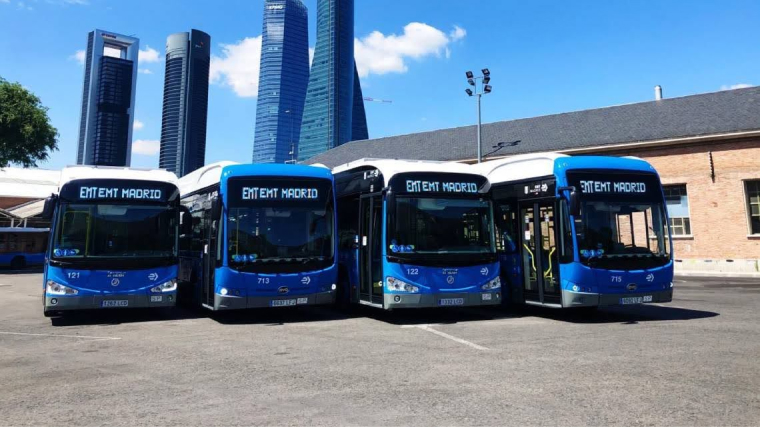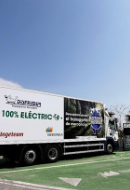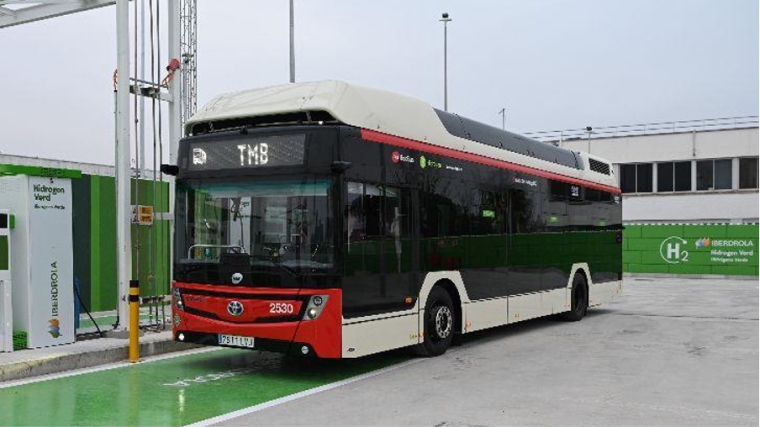Electric buses
The electric bus revolution
In recent years, electric buses have played an ever-greater role in the decarbonisation of society. In the search for environmentally friendly means of transport, public transport is the best alternative, especially buses, as they help reduce traffic congestion and lower transport-related emissions.

Buses are one of the most important means of transport. With the capacity to carry a large number of passengers on each journey (as many as 145 in some models), buses significantly reduce the number of cars on the road. This alone makes them an efficient way to progress decarbonisation, but advancements in vehicle-propulsion technology have also brought changes to buses.
As a result, in recent years, progress has been made in the introduction of zero-emission buses. According to figures from the European Automobile Manufacturers' Association (ACEA), zero-emission bus registrations on the continent grew 45% in the first half of 2024. What’s more, electric buses have proven to be more effective and offer better performance than other alternatives.
How electric buses work
Despite their size, electric buses are no different from cars in that they require infrastructure that recharges their onboard batteries while they are stationary. Once charged, the batteries provide the vehicle with enough energy to complete its route without needing to stop again for recharging.
The most positive and interesting aspect is how easily charging can be planned. Thanks to the pre-established planning of urban bus routes and schedules, it is very easy to determine in advance the necessary stop for battery recharging. These stops can be made at external points or at private ones dedicated exclusively to bus charging, such as those being developed by Iberdrola España.

Electric bikes
Would you like to be part of the future of urban mobility?

Electric trucks
The future of sustainable road logistics.

Electric car batteries
Everything you need to know about electric car batteries.

Advantages of the electric car
Why should I buy an electric car?
Iberdrola and the electric bus
At Iberdrola España, we are promoting the implementation of electric buses with more than 550 charging points already installed and we hope to continue helping to decarbonize more vehicles in the future within the urban transport electrification projects that the company is carrying out. In addition to being present at the facilities of the main public transport operators in Spain, we also have charging points awarded in Portugal, within Braga Urban Transport, and in Scotland, with points up and running at Houston's, Lockerbie.
In Iberdrola España's pursuit of the electrification of public transport, we have helped operators to analyse the feasibility of the electrification of lines and to study rolling out charging infrastructure at their platforms. We also analyse the electric infrastructure to be able to implement charging points in depots, as has been done in Madrid, Spain for the EMT city buses. In addition, our value proposition includes long-term renewable energy supply and smart charging management software to optimise charging time and emissions.
Installation of smart recharging systems for electric buses
1 Feasibility study
Before kicking off the project, we have to check that the site is suitable for the installations

Installation in depots
Depots are equipped with recharging points and all the necessary infrastructure
2








100% green energy
Electricity is generated from renewable energies

4 Smart charging system
Charging can be adjusted as required, monitoring the status of the batteries and the grid and maximising the use of renewable energy
 SEE INFOGRAPHIC: Electric buses [PDF]
SEE INFOGRAPHIC: Electric buses [PDF]
Advantages and the implementation of electric buses
The main advantage of these new means of transport is the reduction of CO₂ emissions and lower operating costs due to the price difference between traditional fuels and electricity, which offsets the higher initial investment in infrastructure. Additionally, their quieter running is a crucial factor in decreasing noise pollution.
Companies such as Volvo, Mercedes, Solaris and Irizar have been working on projects to expand their range of electric buses. Advances in technology have made it possible to introduce intercity electric bus options to the market, with more than 100 already operating within the Madrid region, as well as 340 in the capital. Additionally, some manufacturers have developed long-distance electric buses.
Unfortunately, there are some drawbacks to electric buses, such as the time required to recharge their batteries and, in some cases, their range. For this reason, in addition to electric buses, Iberdrola is also investing in hydrogen-powered buses. We were the first company to provide green hydrogen for buses, thanks to our facility at the Port of Barcelona, with the goal of meeting the refuelling needs of 60 buses as well as part of the daytime fleet of Barcelona’s transport network.





